Submitted by WA Contents
MVRDV and HASSELL+ develop "collect and connect" toolbox to revitalise disused public spaces
United States Architecture News - Feb 05, 2018 - 05:46 20209 views

MVRDV and HASSELL+ have unveiled plans for their proposal, tackling the challenges of climate change and ecological disaster around San Francisco Bay. The two teams develop "collect and connect" toolkit to proposed sites in South San Francisco.
The two studios are currently working on new design strategies to strengthen San Francisco region’s resilience against sea level rise, severe storms, flooding and earthquakes, by considerably working with South San Francisco communities, national and international experts.
The team, led by Australian firm HASSELL, was named among ten finalists for Resilient By Design's Bay Area Challenge last year and their design scheme, alongside Deltares, Goudappel, Lotus Water, Hatch, Civic Edge, Idyllist and Page & Turnbull, are through to the next phase of the Resilient by Design Bay Area Challenge with the allocated site of San Mateo County.

Based on a comprehensive research on different sites of San Francisco Bay, the team focuses on San Mateo County that is majorly at risk of sea level rise and seismic events.
Located in San Mateo County, South San Francisco is the bay’s self-proclaimed "industrial city". Major freeways and rail lines link the city to the region but also divide parts of the local area.
Over the last half-century, local residents have lost their historic and valuable connection to the water. Parts of the community suffer from flooding and have limited access to a shoreline blocked by industry.

"Climate change is real, by the end of the century there will be a sea level rise of 2 meters. Bay Area communities respond to this challenge in a multi-disciplinary approach to upgrade their general resilience," said Nathalie de Vries, MVRDV co-founder.
"We developed a flexible toolbox for San Mateo which helps the local community by revitalising public spaces that collect and connect people and water."
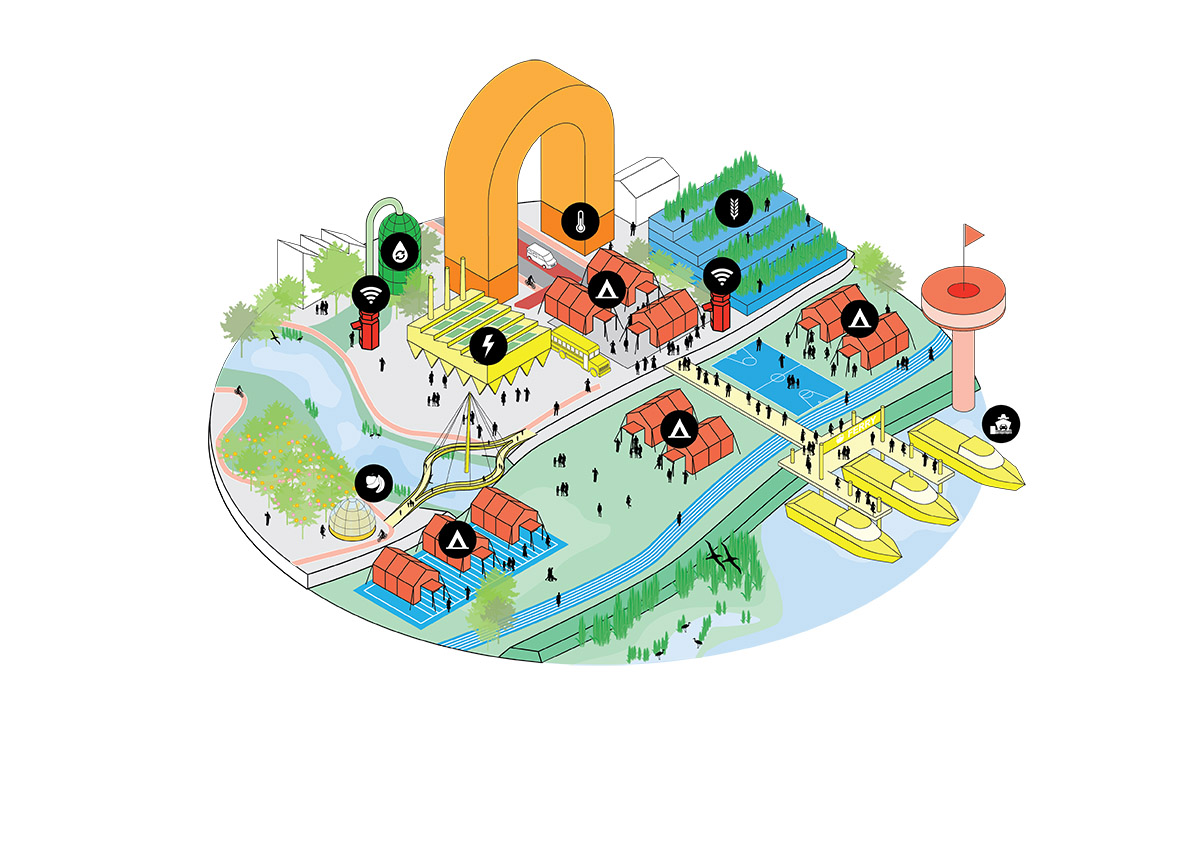
HASSELL+ team developed a flexible toolbox for San Mateo County which helps the local community by revitalising public spaces
"San Mateo County is the perfect testing ground for solutions that could unlock potential for shoreline communities around the entire Bay Area," said Richard Mullane, principal at HASSELL, the Australian-based firm leading the HASSELL+ team.
In the team's proposal, disused public spaces are revitalised and people are connected to water through a network structure of green spaces, creeks and revived high streets.
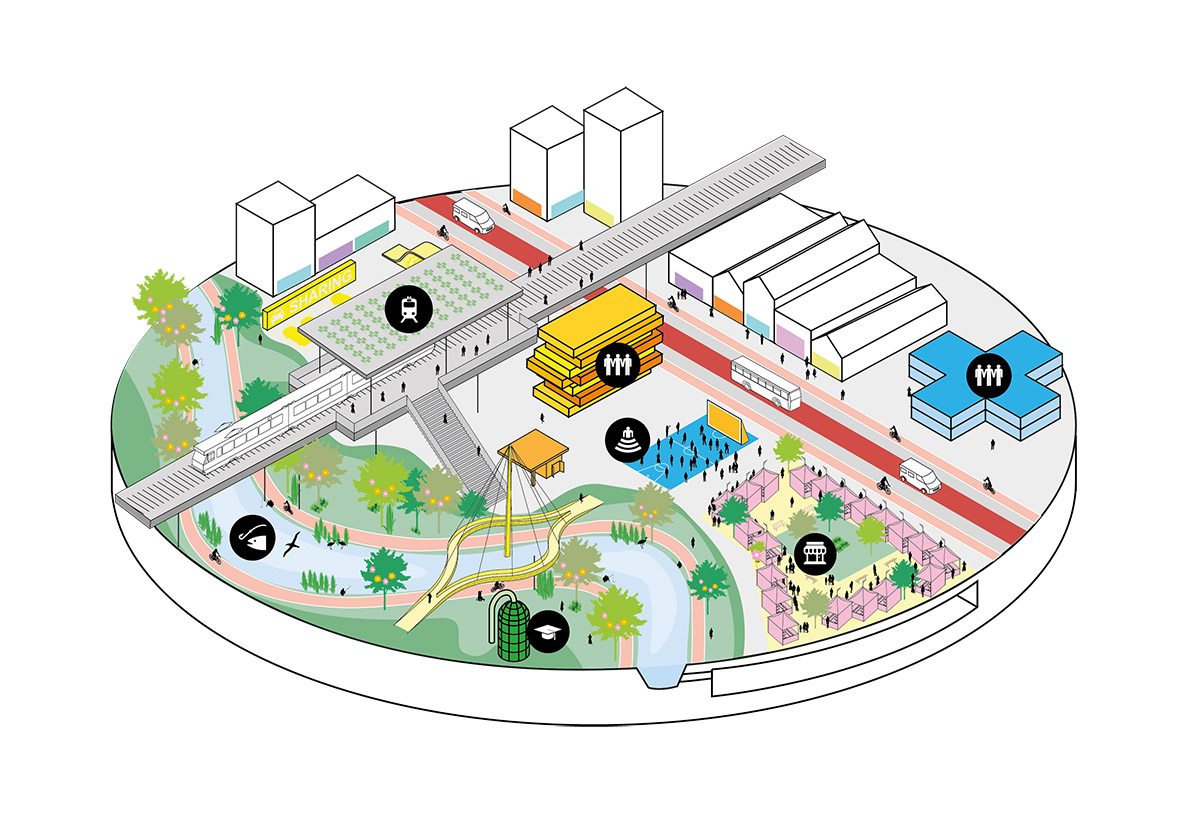
South San Francisco waterfront communities are re-imagined as vibrant public places for everyday use
These connections are aimed to serve as points of collection, connection and water management from the ridgeline to the shoreline and across the bay via an enhanced ferry network.
"HASSELL+ re-imagined a series of San Francisco waterfront communities as vibrant, fundamentally public places primed for everyday use – but also vital for environmental and emergency needs," stated in a press release.
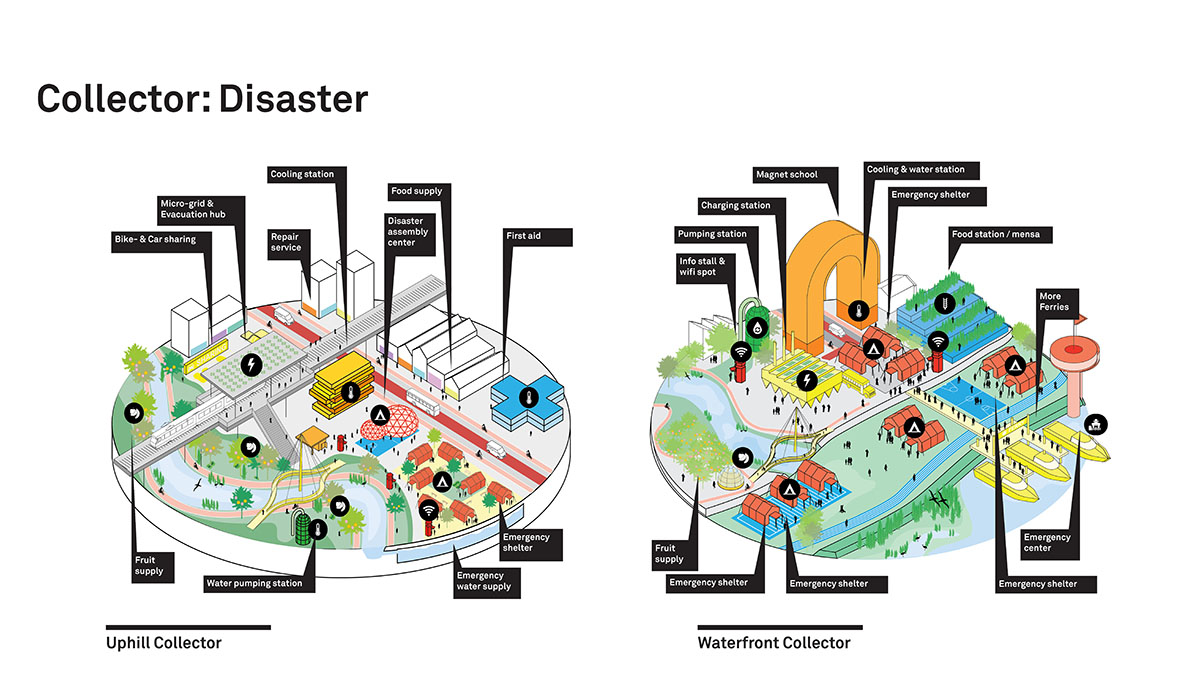
The two studio's design scheme is inspired by the way the region’s communities used open spaces during both the 1906 San Francisco earthquake – one of the deadliest in US history – and the recent, devastating Northern California wildfires.
"Recharged ‘connectors’ – streets and creeks – and new ‘collectors’ – responsive, adaptable open spaces – would become places for everyday gathering, big events and disaster assembly. Together, they could ultimately make the Bay Area more physically and socially resilient," said the team.

At Colma Creek, HASSELL+ has imagined a new Shoreline Park. Meanwhile, Grand Avenue will become a vital community hub with a drop-in storefront people can visit during the design phase.

The team’s design process will draw heavily on local voices and insights to ensure that design solutions – which will be presented in May – reflect the community’s needs.
In addition to the drop-in centre, city residents will be able to access a digital platform to learn about adapting for resilience and get involved in decision making.

Since the challenge launched last May, it's received an outpouring of support from elected officials across all nine counties in the Bay Area. San Mateo County Board of Supervisors President Dave Pine sees it as an opportunity to draw on the technical expertise of design teams, think creatively, and ultimately, create lasting change in the county.
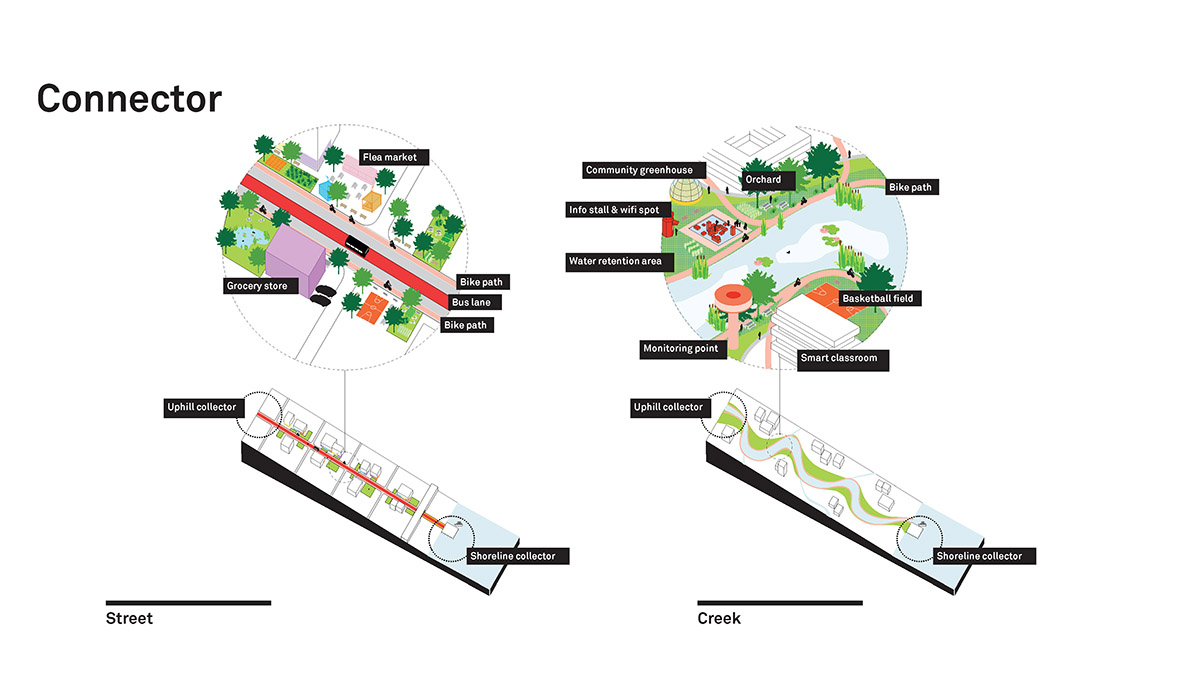
The team headed by HASSELL are one of ten teams selected by Resilient by Design, modelled after the successful Rebuild by Design challenge that addressed infrastructure needs in New York, New Jersey, and Connecticut following the devastation caused by Hurricane Sandy.
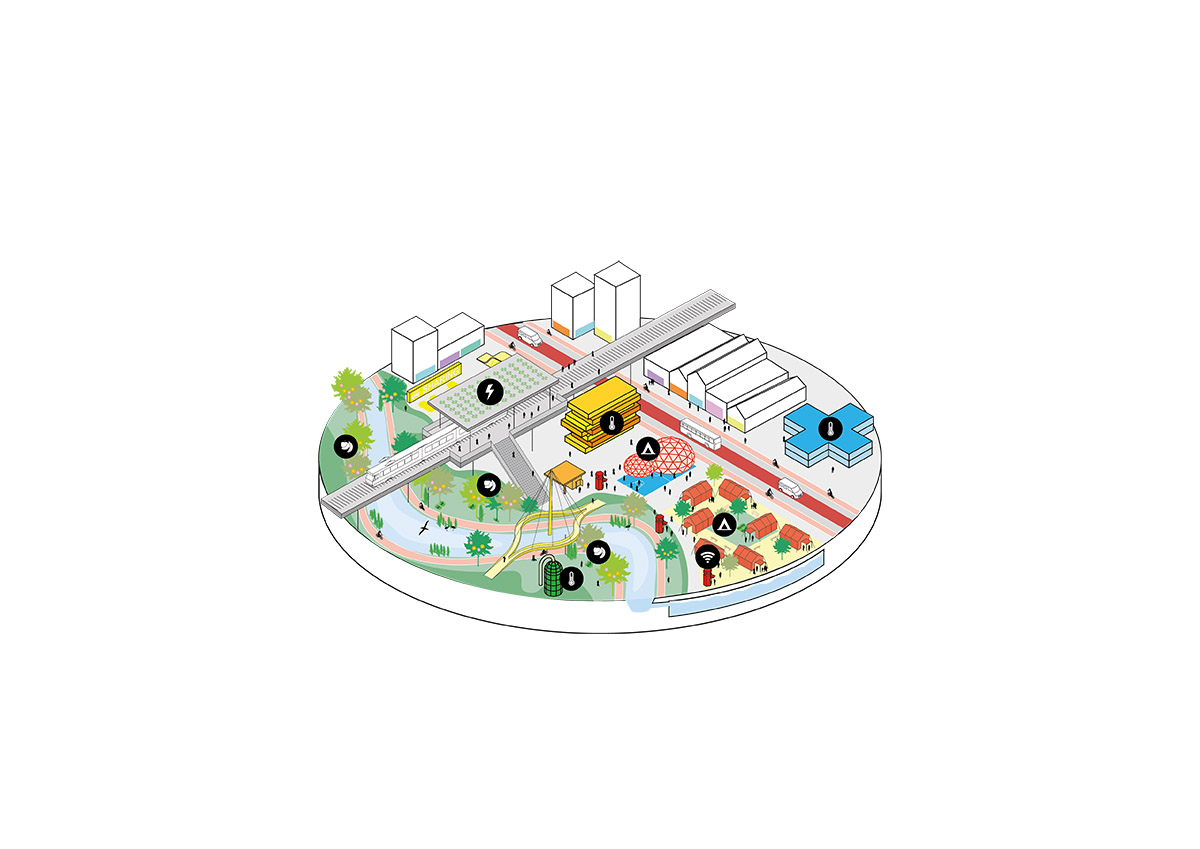
The program is tied to The Rockefeller Foundation’s 100 Resilient Cities network, which aims to support 100 cities to build resilience for the 21st-century.

The HASSELL+ team is an international team of experts who understands designing and living with water, alongside considering the potential that waterfront locations have for better connected and resilient communities.

Project facts
Location: South San Francisco, USA
Client: Resilient by Design
Programme: Masterplan, 800 kilometers of shoreline
Design MVRDV: Winy Maas, Jacob van Rijs and Nathalie de Vries
Design Team: Nathalie de Vries, Jeroen Zuidgeest with Kristina Knauf and Vedran Skansi
Collaboration: HASSELL+ (HASSELL, MVRDV, Deltares, Goudappel, Lotus Water, Frog Design, Civic Edge, Idyllist, Hatch, Page & Turnbull)
All images © MVRDV and HASSELL+
> via MVRDV
